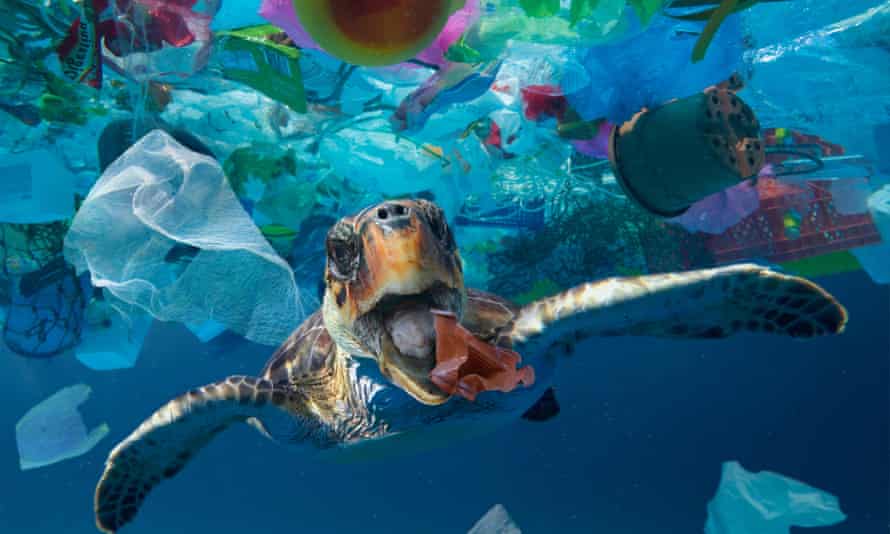“We were not surprised about plastic being 80% of the litter, but the high proportion of takeaway items did surprise us, which will not just be McDonald’s litter, but water bottles, beverage bottles like Coca-Cola, and cans,” said Carmen Morales-Caselles, at the University of Cádiz, Spain, who led the new research.
“This information will make it easier for policymakers to actually take action to try to turn off the tap of marine litter flowing into the ocean, rather than just clean it up,” she said.
Straws and stirrers made up 2.3% of the litter and cotton buds and lolly sticks were 0.16%. “It’s good that there is action against plastic cotton buds, but if we don’t add to this action the top litter items, then we are not dealing with the core of the problem – we’re getting distracted,” Morales-Caselles said.
Prof Richard Thompson, of the University of Plymouth in the UK, who was not part of the research team, said: “Having [this data] recorded in a proper scientific way is incredibly useful. There can be a reluctance to take action on something that seems very obvious because there isn’t a published study on it.”
The research, published in the journal Nature Sustainability and funded by the BBVA Foundation and Spanish science ministry, concluded: “In terms of litter origins, take-out consumer items – mainly plastic bags and wrappers, food containers and cutlery, plastic and glass bottles, and cans – made up the largest share.”
The analysis included items bigger than 3cm and identifiable, excluding fragments and microplastics. It distinguished between take-out plastic items and toiletry and household product containers.
The highest concentration of litter was found on shorelines and sea floors near coasts. The scientists said wind and waves repeatedly sweep litter to the coasts, where it accumulates on the nearby seafloor. Fishing material, such as ropes and nets, were significant only in the open oceans, where they made up about half the total litter.
A second study in the same journal examined the litter entering the ocean from 42 rivers in Europe, and was one of the datasets Morales and colleagues used. It found Turkey, Italy and the UK were the top three contributors to floating marine litter.
“Mitigation measures cannot mean cleaning up at the river mouth,” said Daniel González-Fernández of the University of Cádiz, who led the second study. “You have to stop the litter at the source so the plastic doesn’t even enter the environment in the first place.”
In May, Greenpeace revealed that UK plastic waste sent to Turkey for recycling had been burned or dumped and left to pollute the ocean. US and UK citizens produce more plastic waste per person than any other major countries, according to other recent research.
The researchers recommended bans on avoidable take-out plastic items, such as single-use bags, as the best option. For products deemed essential, they said the producers should be made to take more responsibility for the collection and safe disposal of products and they also backed deposit return schemes.
“This comprehensive study concludes that the best way to confront plastic pollution is for governments to severely restrict single-use plastic packaging,” said Nina Schrank plastics campaigner at Greenpeace UK. “This seems undeniable. We will never recycle the quantity of waste plastic we’re currently producing.”
Thompson said: “What’s going on in the sea is a symptom of the problem – the origin of the problem and the solution are back on land and that’s where we’ve got to take action.


Leave A Comment